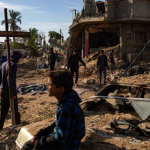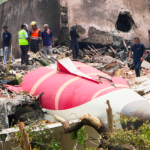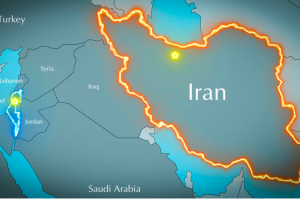On the night of June 14, 2025, a huge blaze broke out at the Shahran oil storage facilities, in northwest Tehran, following an Israeli air attack on Iran’s energy and military targets. The attack, which struck at approximately 11:30 p.m. local time, sent flames and a thick cloud of smoke billowing into the sky that was visible in the capital, miles away. The strikes also targeted the Shahr Rey refinery south of Tehran and sections of the South Pars gas field in Bushehr in an effort to disrupt Iran’s fuel supply and nuclear-associated infrastructure. Iranian officials said that the levels of fuel in the Shahran depot were low — a factor that restricted the spread of the fire — but that emergency teams battled to bring the fire under control through the night until early on June 15. Residents in the upscale Shahran area near the blast reported feeling a series of explosions, raising fears damage had been caused to homes.
The Israeli operation — which hit more than 150 targets, by Israeli estimates, and struck some of the most important bases and facilities of Iran’s military in Syria, including a missile depot and the headquarters of the defense ministry — is part of a wider reaching ramping up of military actions against both Iran and its proxies across the Middle East. High-ranking figures like the head of Iran’s Revolutionary Guard and a top military leader were among the casualties, leaving at least 70 dead, most of them civilians, and hundreds more wounded. In retaliation, Iran launched close to 200 missiles and drones at Israel, targeting urban areas including Tel Aviv and killing at least a dozen people, some of them children, and injuring more than 200.
Iranian leaders denounced the Israeli strikes as a violation of a national sovereignty and a warning that a more powerful response would be mounted should the attacks persist. But they also derailed a planned nuclear talk with President Trump, and although they denied United States involvement, Mr. Trump warned Iran not to target American interests, saying he would unleash a large military response, yet continued to pursue a diplomatic solution. Israel’s defense chief threatened to go even wide and further, if Iran continued to bombard his country with missiles, asserting authority over Tehran’s airspace.
The roots of the conflict can be traced to recent Israeli strikes on Iran-backed groups like Hezbollah, which has further inflamed tensions in the region. Iran said any U.S., British or French support for Israel would take its bases into the conflict, stoking anxieties that a wider war could be sparked. Outside on high alert By June 15 both sides were essentially on advance, with the Iranians assessing damage and the Israelis preparing for possible retaliation. The international community called for restraint, but there were no immediate announcements of de-escalation measures.











Add Comment